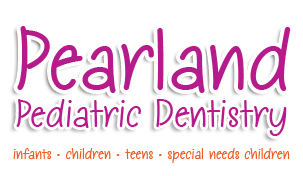When to Begin Dental Care for Your Baby
January 9th, 2019

Children’s oral health differs from the needs of adults in many ways. It’s vital for you to understand what your child needs to keep his or her teeth healthy. Dr. Pamela Clark and our team are here to answer your questions to set you and your little one up for success.
In-home dental care should start as soon as your baby show signs of developing that first tooth. At around age one or two, bring your son or daughter to our Pearland, TX office. Dr. Pamela Clark will examine your child’s tooth development and gum health.
The initial appointment will focus on getting your youngster familiar with our office and comfortable with our staff. We will go over several general matters during that first visit:
- Inspect for signs of decay or other tooth or gum problems
- Check for gum disease or cavities
- Examine your child’s bite and possible misalignment
- Clean the teeth, and apply fluoride if your child is old enough
- Talk with parents about proper oral health
- Give you tips for brushing and flossing your little one’s teeth
- Answer any questions you may have about caring for your son or daughter’s teeth
Once your child is old enough for the first dental visit, you should schedule regular cleanings every six months. Call our Pearland, TX location if you have any conflicts or questions.







